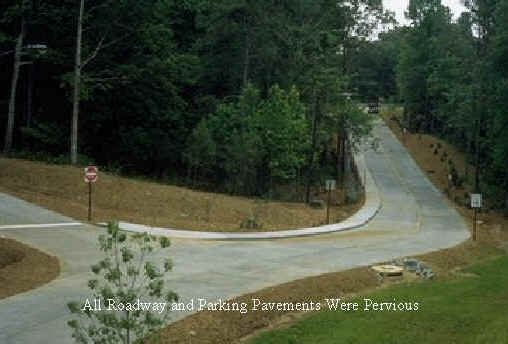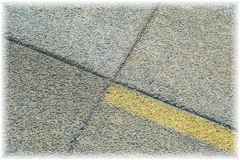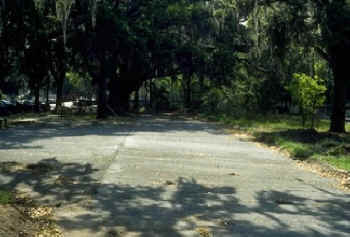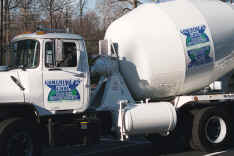Pervious Pavements for a More Livable
Environment

|

City of Atlanta's pervious parking lot
at corner of Pryor and Memorial. |
A new
mind set is needed when designing stormwater management systems.
Rather than designing a system to pass huge storm events (that may
occur only twice a century) rapidly from an area, water management
planners should consider the benefits of capturing and recharging
water from the smaller, more frequent rain intervals. Atlanta, for
example, receives significantly more than half its annual rainfall
from precipitation events of less than an inch. The ecosystem
lives and dies on daily events. A stormwater system incorporating
pervious pavement will be much more effective in reducing total
runoff and increasing the amount of filtered groundwater. The
material's ability to retain stormwater while improving water
quality and enhancing tree and vegetation growth, makes this
material a very exciting example of green and sustainable building
practice. |
Pervious pavements are
less able to absorb and store heat than conventional pavements.
The lower density of the material (15 - 25% void spaces) reduced
heat storage capacity. The lighter colors of some pervious pavement
systems reduce the heat absorbing capacity of the pavement. The
open void structure in the pervious pavement allows cooler earth
temperatures from below to cool the pavement. These factors allow
pervious pavement systems to approach natural ground cover in heat
absorbing and storage capacity.
|
|
 |
Unlike traditional concrete or asphalt, pervious pavements typically provide a void content of 15-25%, offering improved filtration and an enormous amount of surface area to catch oils and chemical pollutants. Some experts believe that the bacteria living in these spaces break down pollutants preventing much of the polluted runoff that normally occurs with traditional pavements. Parking lots, in particular, hold a tremendous potential for this material because of the amount of oil and other hydro-carbon liquids that seep from parked cars. In addition, if not impeded, these bacteria may lead to damages that may prompt home owners to use their mortgage for repairs and renovations.
|
 |
Pervious pavements can be made of concrete,
asphalt, open-celled stones, and gravel, that are mixed in a
manner that creates an open cell structure allowing water and air
to pass through. For example, porous
concrete can pass 3-5
gallons of water per minute, which is far greater than most
conceivable rain events and highly effective in controlling
stormwater drainage. |
|

|
Because pervious pavements allow rainwater to
seep into the ground through the pavement:
- Vegetation is watered, reducing
the need for irrigation
- Ground water is recharged
- Water resources are preserved
- Stormwater runoff is reduced
- Stormwater runoff quality is
improved
|
|
The strength and durability of
pervious pavement appears to be equal to traditional materials.
There are several examples of parking lots built more than twenty
years ago with pervious pavement that are still structurally sound
and still have a high level of permeability. Pervious pavement is also less susceptible to
freeze-thaw cracking, due to large void spaces.
|
| Concerns
about clogging of pervious pavements can be "designed
out", by reducing erosion and sediment runoff through
strategic design and water retaining ground cover. |
 |
|
|

Look for ready mix concrete trucks with these
decals
"Concrete is Cool"
|
Paving
with porous materials:
- reduces storm water runoff
- replenishes groundwater
- reduces flooding and loading to
sewage treatment plants
- means less land set aside for
retention basins
- reduces pollutants in run-off
- reduces irrigation requirements
- cool water run-off temperatures
- lessens evaporative emissions
from parked cars
|
|
POROUS
CONCRETE Parking Lot
Atlanta Mayor Shirley Franklin dedicated the City's new
"environmentally friendly" parking lot on
Thursday,
June 6, at 9:30 a.m. We commend the city and all those involved in designing and installing this
porous concrete parking lot that helps to manage stormwater and
mitigate Atlanta's urban heat island.
|
 |
 |
 |
|
More Resources Sustainable Living:
SUSTAINABLE HOUSE DESIGN
|

